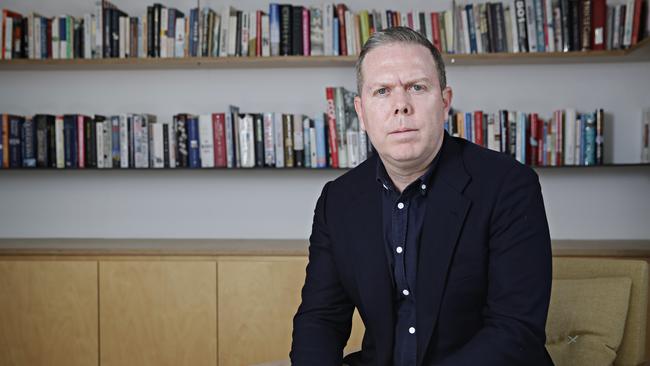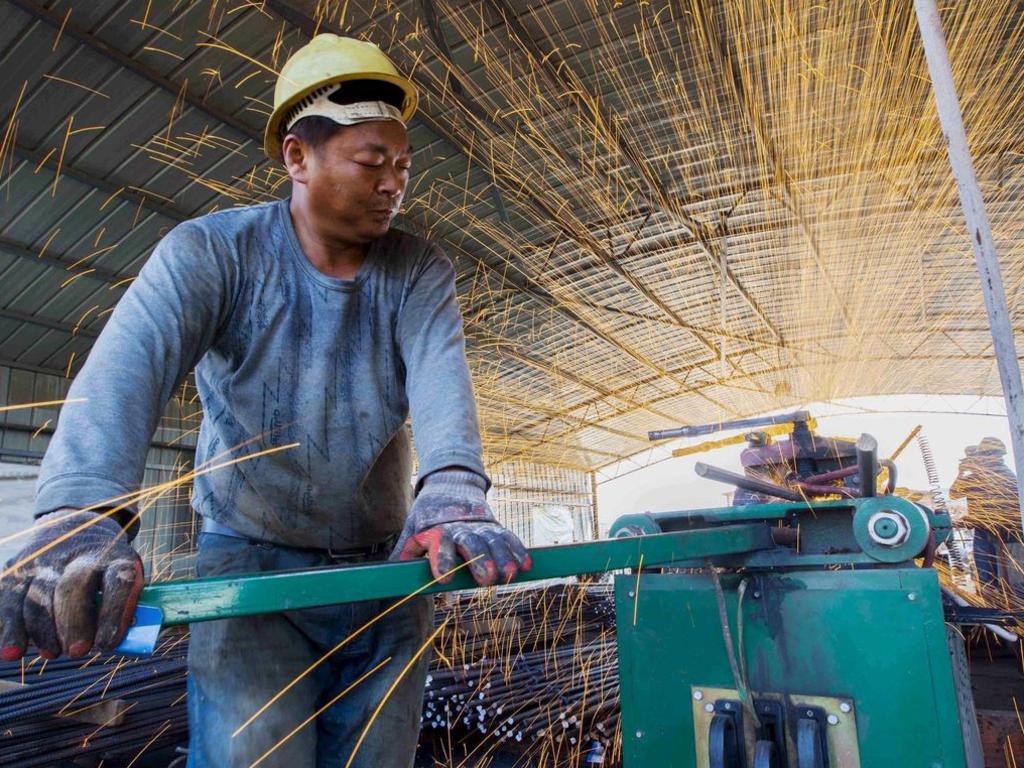KPMG partner Paul Howes calls for migration policy rethink; warns on dangers of Covid recovery
Paul Howes says governments need to resist the urge to jump on policy that sounds good compared to what makes sense economically.

KPMG partner Paul Howes has called for the introduction of a significant permanent migration program to deal with a looming skills crisis and warned of the dangers of populist policies wreaking more economic havoc as the nation moves through the recovery phase from the COVID-19 pandemic.
Mr Howes, who is a member of Scott Morrison’s National COVID-19 Co-ordination Commission led by former Fortescue Metals chief Nev Power, said Australia was now in the second and “most dangerous phase” of the pandemic as the tail of the coronavirus continues to spark snap border closures.
“There is still a huge amount of fear in our society about the potential impact of this virus on the community’s health. When you have fear in society is when populism is most successful,’’ Mr Howes told The Australian.
“Policy that feels and sounds good but isn’t necessarily economically good for our society is very tempting. We need to continue to resist the urge to be jumping on what sounds good compared to what makes sense economically.”
Mr Howes, who spent 15 years in the Australian labour movement, is the national managing partner of the KPMG middle market enterprise business, meaning many of his clients are in the small to medium enterprise (SME) sector that drives the economy.
“This virus will have a long tail. It will be with us for many months and years to come,’’ Mr Howes said. “As a society we need to learn to live with that tail and be sensible in our responses. For the mid-market, we need greater certainty and clarity of how we will be living with that tail.’’
He said the success of the national cabinet process had shown how politicians could work together in dealing with their response to the virus.
“We have had a sensible approach taken by national cabinet on guidelines on dealing with future outbreaks,” he said. “Now we need greater adherence to that. Businesses need to be able to plan how they will deal with it. This is more of a warning than a lesson. But we need to resist the urge for kneejerk announcements. It is far harder for a small business to deal with a shutdown than a multinational.’’
Mr Howes, who spent seven years as the national secretary of the Australian Workers’ Union and is now a member of KPMG’s 12-member national leadership team, said the middle market sector of corporate Australia would drive the growth of the economy over the coming years.
In what he called the “third phase” of the recovery from the pandemic — over the next three to five years — he said the federal government needed to consider introducing a significant permanent migration program after a big decline in immigration last year and similar forecasts for 2021.
The nation’s international borders remain closed other than for returning citizens and residents as the virus continues to rage abroad, and there is little prospect of them opening in the short term.
But Mr Howes said Australia needed to be prepared when they reopened.
“It is easy to earn a cheap headline around Aussies first and jobs for Australians. Thankfully we haven’t seen unemployment soar to the levels predicted, largely because of the JobKeeper policies,’’ Mr Howes said.
“But we will have shortages of skills in some markets. Which is why we should be having this discussion around migration. The mid-market needs a growing population to grow and thrive. In the past we have solved skills shortages through temporary migration schemes, but over the next five years we need a strong bias towards permanent migration, which is critical for the mid-market to thrive.”
Businesses are bracing for an insolvency cliff when JobKeeper ends at the end of March and after bankruptcy protection relief introduced at the height of the COVID-19 crisis was phased out late last year.
Banks and accounting firms are reportedly beefing up staffing in their insolvency practices to deal with a predicted rush of firms calling in restructuring experts, administrators and receivers.
But Mr Howes said he believed the so-called insolvency cliff had been transformed into a “hill” by the government’s assistance measures.
“They have provided an opportunity for the mid-market to get the time and space they needed to adapt,” he said.
“The government has made breathing space available for businesses in the mid-market to adjust.
“March 28 does look large in many peoples’ minds around JobKeeper. I am personally confident there has been enough time and opportunity provided for businesses in my sector to come down that hill well.”
He said KPMG was ramping up for a big year of activity in the mid-market space after a strong rebound at the end of last year, especially in the agricultural “paddock to plate” and manufacturing sectors.
While he said there would need to be ongoing government assistance for the mid-market going forward, “that doesn’t have to be in the form of direct wage subsidies.”
“Job Trainer [a joint federal and Victorian government initiative to increase access to low-cost training for young people] is an important reform,” Mr Howes said.
“We will need to reskill parts of the workforce as we build back. As we continue to go through this stage two of the crisis, we need to start focusing on other areas. Like how we get the right level of innovation and R&D into mid-market businesses.”








To join the conversation, please log in. Don't have an account? Register
Join the conversation, you are commenting as Logout